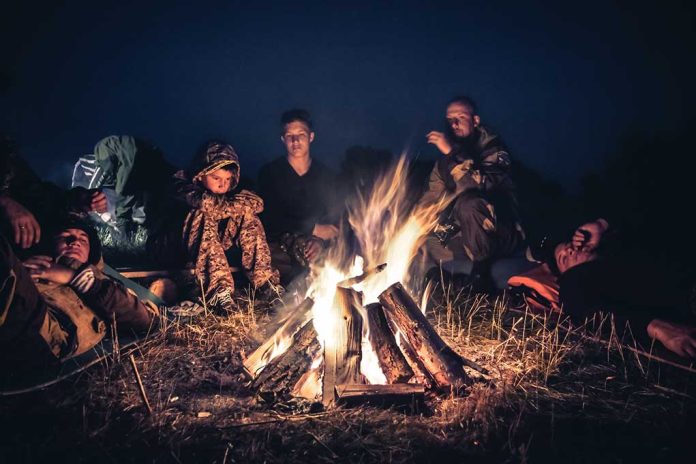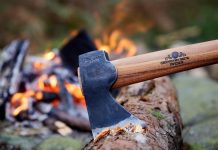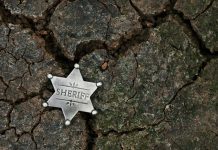(SurvivalDaily.com) – The truth of surviving any long-term scenario is you can only go so far by yourself. The lone-wolf mentality may work for the short-term, but eventually, the work to keep yourself alive will require a community. Many survivalists have already embraced this and have started to build survival groups who will come together in the event of a world-altering event.
The Importance of Community
Yes, you can survive on your own, possibly even for a long period of time. Having a group to fall back on will increase your odds of survival greatly though. Not only will having others there to share the workload make life easier, but they will also be able to help should you become injured or sick.
For one, even if you have been building a surplus of supplies for years, you’ll run through them eventually. Replenishing those supplies is tough to do solo. Gardening, hunting, gathering water, and restocking other essential supplies is a lot for one person alone. Doing all that while being on guard 24/7 will wear you thin real quick.
This is where having a group or community comes in handy. Distributing responsibilities and workloads makes everyone’s lives easier. In a post-collapse world, building a community will be essential to not only your personal survival, but the survival of society as a whole.
Family First
When building a survival team, you should always start with your family. These are people you can trust (generally) and you already know their tendencies and strengths. Training your family to work as a team is easier because you’re not starting from scratch.
Also, you probably already have an emergency plan with your immediate family. This means less prep work and less stress. For those of us who are already preppers, odds are that your family is already involved in your lifestyle.
Team Building: Before it Hits
Building a survival team in advance of TEOTWAWKI can be done in a few ways. Again, you should start with your family, then choose people who have skills and abilities that will be a boon to your community. Carpenters, hunters, plumbers, gardeners and the like are all good candidates.
Regardless of who you choose, your entire group should be willing to contribute to the cause. If only one person buys all of the supplies, they’re either very wealthy or are going to break their bank. Not to mention they could develop the “I bought it” mentality, which no one needs.
The next point to focus on is training. It is a good idea to make sure your group is capable of working cohesively. Team building exercises are a great way to get everyone on the same page, and there are plenty of activities to test and build your team with:
- Escape Room
- Paintball
- Obstacle Course
- Football
- Capture the Flag
- Camping
- Simulated Survival Situations
These, and other, kinds of activities will help your community get to know each other, their strengths and weaknesses, and their personalities. Some people are natural-born leaders, and doing these activities may bring that out in them. This may make assigning a leader easier, or you could always hold a vote.
However, not everyone is able to work together. If someone loses their cool or can’t contribute to the team, don’t be afraid to kick them out. This is only a game — until it isn’t. Everyone’s lives depend on their ability to work with others.
Sitting down and talking with your group is a great way to get to know what skill sets they have. Whether they’re good hunters, farmers, survivalists, or maybe they’re experienced in medicine, everyone can find a niche in your team. Even kids can perform menial tasks like pulling weeds or cleaning.
Once your team is built, the next step is to form a plan. If things go bad, where will you meet? What will everyone bring with them? How far away is everyone, and how long will you have to wait for them to arrive? Will you be bugging out, or bugging in? Having a team won’t do anyone any good if they are spread to the wind at the onset of a major disaster.
Outsiders
After a massive, end of the world as we know it (TEOTWAWKI) event, communities will likely arise based on necessity. Sure, your group will start with your family and your survival team, but will eventually grow to encompass friends, neighbors, and possibly even strangers. The true strength of a survival community is in the number of people it contains, and the diversity of skills and supplies those people have.
The strength of numbers cannot be understated. Criminal elements will pass up a well-fortified settlement in favor of a smaller homestead. Think about it, would you rather face a large group of (likely armed) people, or a small family who doesn’t have the option to call for help? Also, a larger group has the manpower to set up rotating lookouts to guard against potential threats.
Each member of the group also brings with them unique experiences, and skills, which will benefit the whole. Let’s face it, Jacks-of-all-trades are extremely rare in this day and age. Even if your group happens to be lucky enough to have one, what happens if that person is incapacitated? A diverse group will be more likely to adapt and prevail than a lone-wolf or a small group.
If you want to survive long-term you’re going to need to build a community at some point. The old saying goes, it takes a village to raise a child… but in this case, it takes a village to survive.
What do you think about forming a survival group? Is it a worthwhile investment, or a waste of time? Reply to your email and share your thoughts, we would love to hear from you!
Copyright 2021, SurvivalDaily.com

















